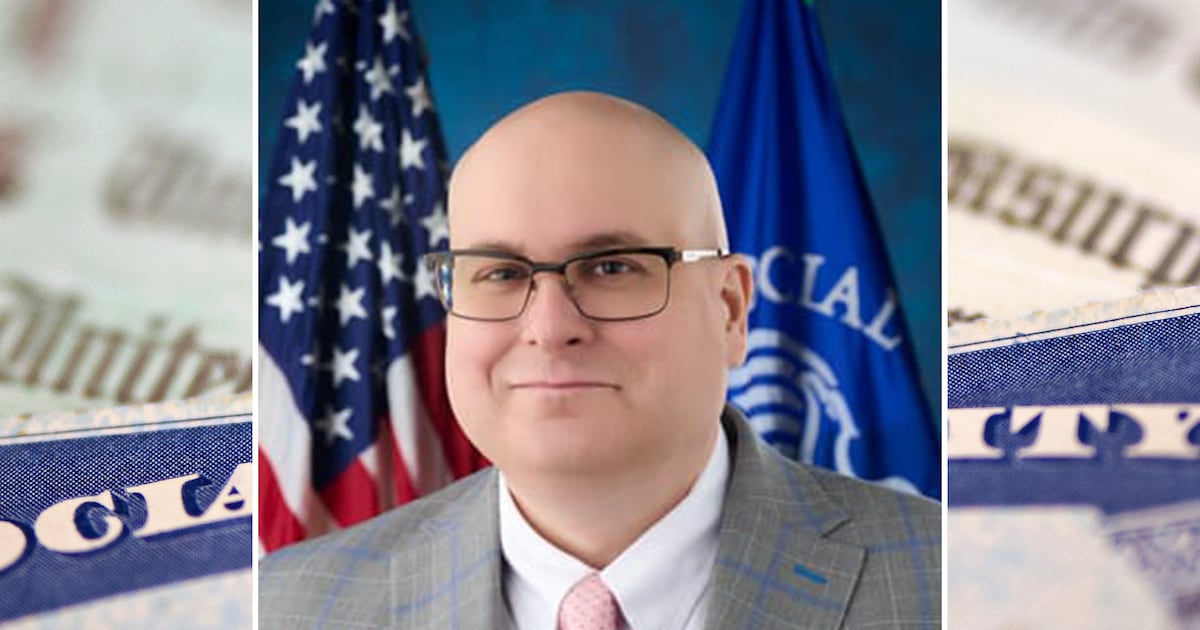Josh Levs really just wants one little thing: “For men and women to join forces and stand together against the backward policies that are hurting us.”
He said this to me during a phone conversation this week in response to my having tentatively suggested that the purpose of his book, All In: How our Work-First Culture Fails Dads, Families, and Businesses—And How We Can Fix It Together, which went on sale Tuesday, is to encourage and empower men to take a more active role in parenting. That’s part of the book’s message, of course; but Levs broke down the broader call to action for me, adding, “Women have made so incredibly many awesome advances, and men have been the beneficiaries of the decades of fighting for equality that women have carried out, and now there’s an opportunity, in a really big way, for men to say ‘We are here…we are part of this…let’s do this together.’”
In 2013, Josh Levs went from being a CNN correspondent and fatherhood pundit to being a Dad In The News when he filed charges with the Equal Employment Opportunity Commission against his bosses. With two boys already at home, Levs and his wife had decided they should take advantage of every moment of paid leave he was entitled to as soon as their third child, a girl, was born. Upon investigating his benefits, however, he found that, unlike employees who became parents through any means other than impregnating another person, he was only allowed two weeks of paid time off. Biological moms, adoptive moms and dads, moms and dads who used a surrogate, and even same-sex, non-co-adoptive partners of adoptive parents, were eligible for ten weeks of paid leave. But not Levs, or any other biological dads who worked for CNN’s parent company Time Warner.
Levs became the “poster-boy” for fathers’ rights in the workplace, his case eventually prevailed, and Time Warner changed its policy to one that is more equitable.
In his new book, Levs launches off of his personal story into an exploration of how “laws, policies, and stigmas are standing in the way of our freedom—the freedom to design our lives in the ways that work best for our families and make us productive, satisfied workers.” Along the way, he offers “practical steps and action items” we can use to subvert and transform traditional gender expectations and gendered policies to “build better lives and a family-friendly nation.”
Despite vignettes about some “Neanderthal” holdouts who cling to traditional stereotypes glorifying alpha male corporate conquistadors and boast (or at least humblebrag) about how little time they spend with their families, All In gives the reader the impression that most dads actually yearn to spend more time with their families and take a more hands-on approach to parenting than their fathers did. Levs argues that when men are encouraged and supported in their efforts to share the parenting and other household responsibilities, everyone in the family, the community, and even the businesses that employ them benefit. When I asked him why this apparent no-brainer seems not to have become universally accepted, Levs answered, “There are communities of people—and you’re part of one of them [Levs and I belong to the same ‘dad bloggers’ Facebook group, where over 1,000 fathers talk about everything from potty training to media portrayals of dads]—where people recognize these realities. But when it comes to our workplace policies, and our laws, and our stigmas, they are still stuck in the 1950s. These structures that dictate so much of our lives have not even begun to catch up. We grew up on Free To Be You and Me, with a basic belief in gender equality; and then we arrived at the workplace and had children, and discovered that the workplace never did grow up.”
I asked Levs what will drive the culture to a place where enough political will exists to actually effect the kind of change in these retrograde structures that keep us from being free to be, you know, you and me. “What it will take to get to a tipping point,” he said, “is for men and women to join hands in this battle together to educate our communities, to educate our businesses, to stand up for better laws that work better for everyone, and ultimately for kids. And what’s better for kids is always better for society.”
To provide context for the extent to which parental leave policies affect children, Levs added, “We have a health care system that is supposed to make sure that children are covered, and that makes sense. We understand as a society that it’s good for society to have kids that are educated and have access to medical care. The kinds of things we’re talking about here—making sure that when a child is born, that at least one of its parents can spend time with it without worrying about having to put food on the table—this is equally basic. In politics especially, we talk about family values; but our structures show that we don’t adequately value families.”
There are other aspects of our society besides politics and business that have not caught up with the changing attitudes toward gender roles. I asked Levs what other cultural hurdles we faced in this struggle, and he responded, “The pop-culture image of dads is far from the reality of dads. This image that we have that dads are less capable at home, that dads are buffoons, that dads are lazy, that dads are uninvolved, that dads are not working as hard on behalf of their families—all of these things are myths. And they are the fuel that drives our backward policies.” These myths crop up in a number of anecdotes Levs uses in All In to illustrate how the media get dads wrong, along with some bright spots where brands have responded to backlash against these tropes. Unfortunately, there are always some throwbacks willing to perpetuate stereotypes that threaten to hobble the march toward gender equity.
“This is why it matters so much when Piers Morgan makes this comment the other day, and Joe agrees with him,” Levs said, referring to Morgan’s assertion on MSNBC’s “Morning Joe” that the reason men tend not to claim the parental leave they are entitled to—much less fight for more—is because they don’t want to spend time with their newborn children, and furthermore, that they are “useless” around them.
Levs wants to be clear that we can’t blame this gender inequity completely on nebulous entities such as “culture” or “social structures,” and that we as individuals need to confront our own complicity in the perpetuation of stereotypes, myths, and attitudes that maintain the status quo in regard to outdated gender roles. There is a chapter in the book that addresses “male privilege” and “female gatekeeping,” the corresponding gears that keep the vicious cycle of hands-off fatherhood grinding along, despite some progress in the opposite direction. Men are taught that they are naturally inept at childcare and housework, and so they are quick to excuse themselves from those responsibilities. And even when they do try to get involved, their wives or partners, who have been taught the same about men’s ineptitude, tend to shoo them away when they don’t meet Mom’s exacting standards. Although these behaviors are learned, it’s our responsibility—both men and women—to, well, get over ourselves.
Finally, lest crusading for men’s rights in the workplace draw eye rolls, Levs added, emphatically, “What I talk about in All In, this discrimination…this is not discrimination against men: it’s discrimination against men and women. The same discrimination that tells men ‘you’re less capable at home’ is the discrimination that’s pushing women to stay at home and taking their options away.
So why do we have so few women in the halls of power? Just 4.6 percent of CEOs in the S&P 500 are women. Why is this? Well, a big, huge reason is the cultural thinking that pushes women to stay home and men to stay at work. And we have to change that thinking, by pushing pop culture, by teaching our kids that there actually is equality in our capabilities, and by standing up to Neanderthals like Piers Morgan, because whenever they say things like that, people in power in corporations go, ‘yeah, that’s true’.”



